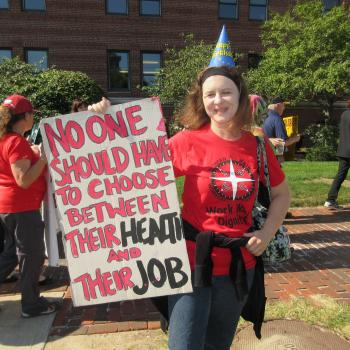It is one of the great myths of the last quarter century that the so-called “Reagan revolution” heralded a dramatic increase in economic growth and living standards, and that this revolution was brought on by lowering taxes and scaling back regulation. But, as I said, this is a myth. It is a myth that appeals to those who believe in social contractarian laissez-faire liberalism, the notion that a good society is one that upholds individual self-interest and defines freedom along these lines. It ignores the fact that the common good may require taming the excesses of the free market. Nowhere is this more evident than with the fallout from the subprime mortgage crisis.
Paul Krugman summarizes the issue nicely.
“America came out of the Great Depression with a pretty effective financial safety net, based on a fundamental quid pro quo: the government stood ready to rescue banks if they got in trouble, but only on the condition that those banks accept regulation of the risks they were allowed to take.
Over time, however, many of the roles traditionally filled by regulated banks were taken over by unregulated institutions — the “shadow banking system,” which relied on complex financial arrangements to bypass those safety regulations.
Now, the shadow banking system is facing the 21st-century equivalent of the wave of bank runs that swept America in the early 1930s. And the government is rushing in to help, with hundreds of billions from the Federal Reserve, and hundreds of billions more from government-sponsored institutions like Fannie Mae, Freddie Mac and the Federal Home Loan Banks.
Given the risks to the economy if the financial system melts down, this rescue mission is justified. But you don’t have to be an economic radical, or even a vocal reformer like Representative Barney Frank, the chairman of the House Financial Services Committee, to see that what’s happening now is the quid without the quo.
Last week Robert Rubin, the former Treasury secretary, declared that Mr. Frank is right about the need for expanded regulation. Mr. Rubin put it clearly: If Wall Street companies can count on being rescued like banks, then they need to be regulated like banks.”
For sure, the deregulation brought great wealth to a small number of people. This wealth was derived from financial chicanery, as mortgage originators made bad loans to people who could not really afford them, and then washed their hands by selling them off to investment banks, who packaged and re-packaged them, selling them on to other investors who had no idea what they were getting. This scheme worked while house prices kept rising, aided and abetted by Greenpan’s monetary policy. Wall Street got rich, and everybody clapped each other on the back about the brilliance of the unregulated financial system. Except that nothing of value was being produced in these transactions. Except that inequality skyrocketed as median incomes stagnated. In prior generations, these great disparities would have been frowned upon, but no longer– this was the Reagan revolution, after all. And when house prices started falling, and foreclosures started rising, the whole house of cards came tumbling down. And what happened? The very same “anti-government” ideologues came cap in hand for a government bailout.












